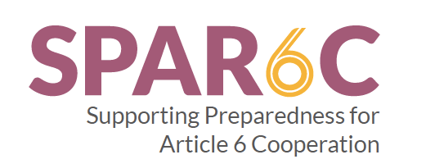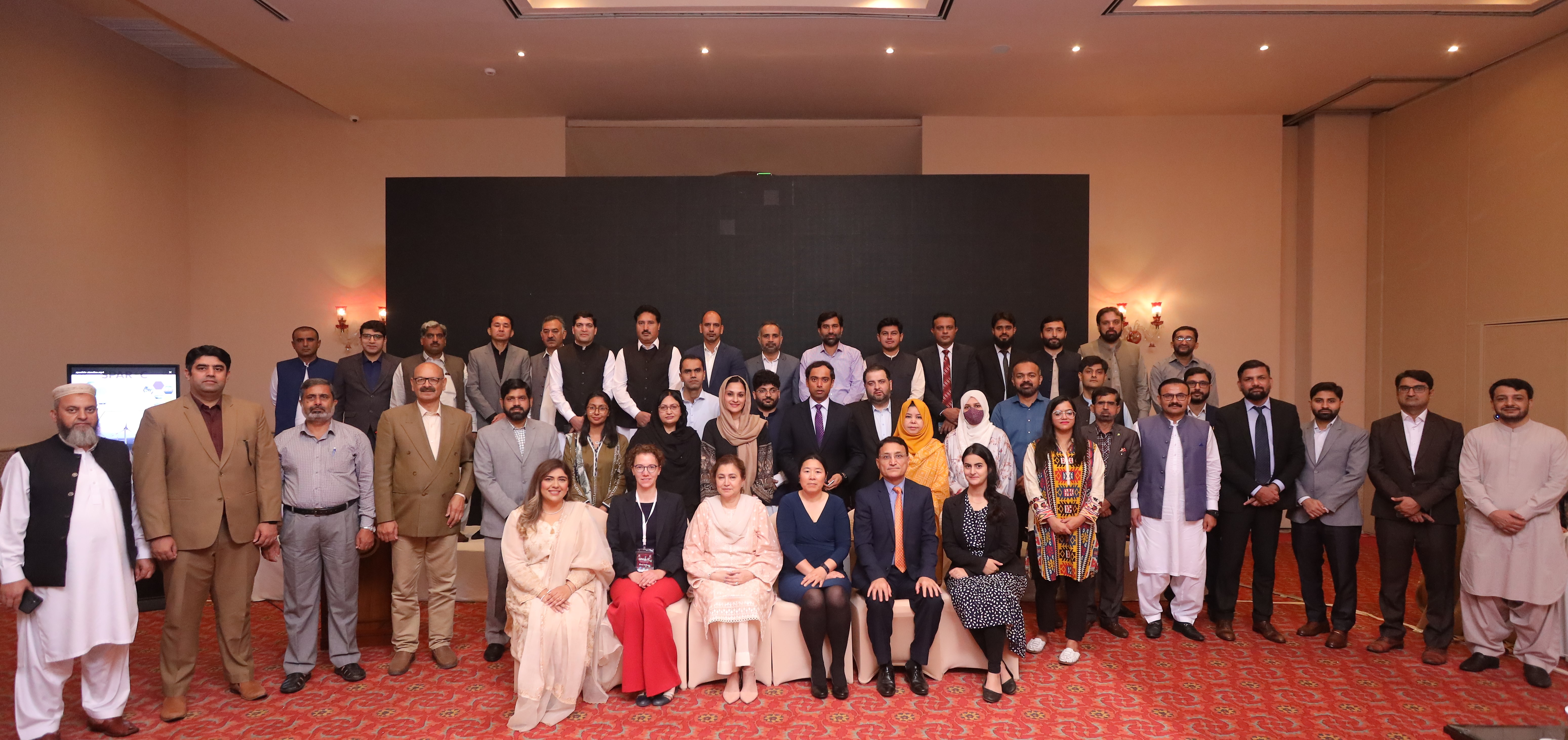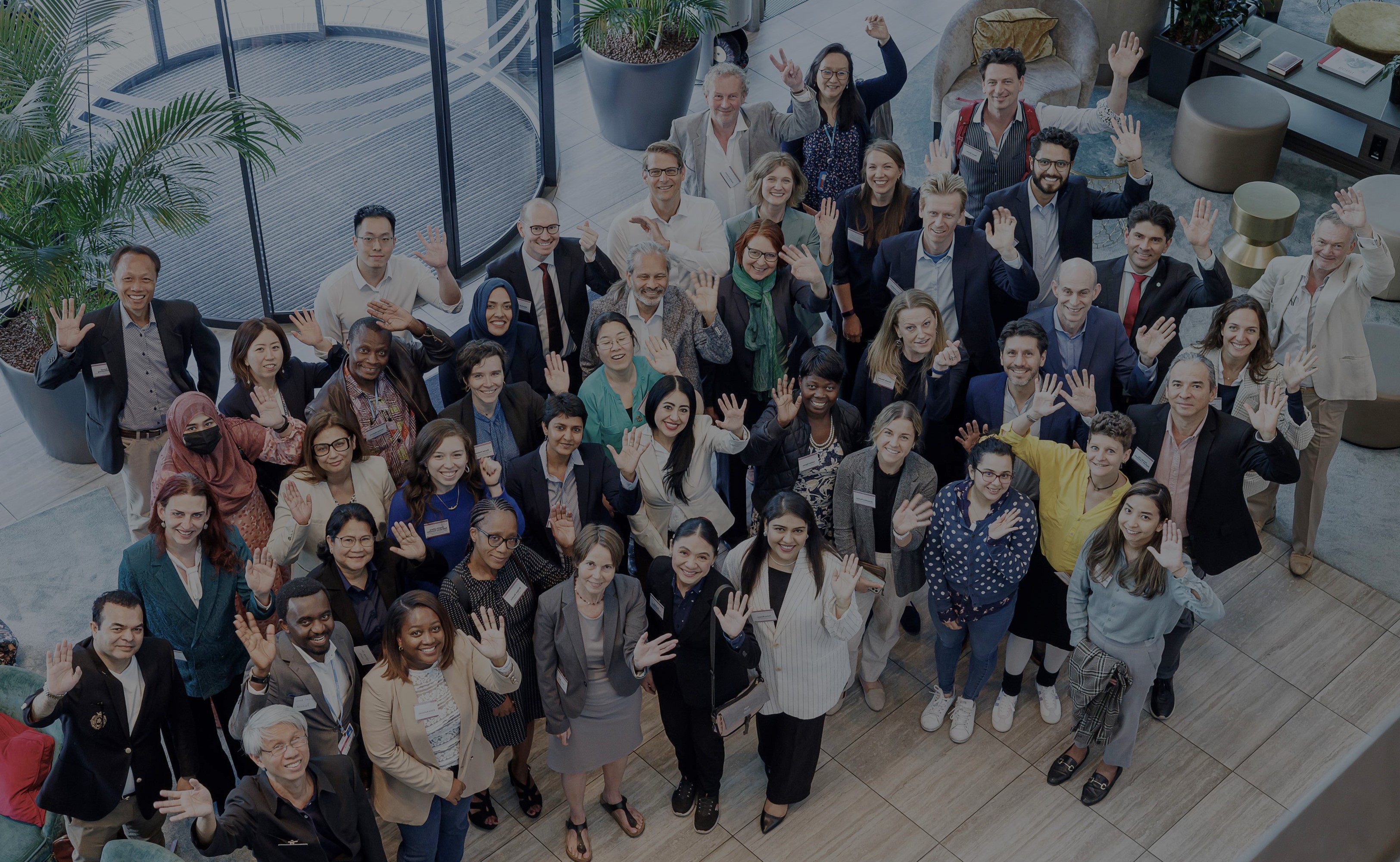The integral role that academia can play in the implementation of carbon markets in Pakistan was discussed during the National Meeting of the Community of Practice for Article 6 Implementing Countries (COP-ASIC) on 1st November at Ramada Hotel, Islamabad. Article 6 of the Paris Agreement 2015 is designed to enable countries to cooperate with each other to achieve ambitious mitigation targets through market-based approaches. This includes the use of carbon trading.
Under Article 6, a country can sell the credits for their greenhouse gas emissions reductions to another country by signing a carbon trade through the Mitigation Outcome Purchase Agreement. The transaction in credits gives emissions-reducing projects an additional revenue stream to help improve their financial viability, attracting investment to a project that would not otherwise be bankable. In addition, these projects must demonstrate how they contribute to economic and social development in the host/seller country.
The meeting brought together the Pakistan COP-ASIC’s steering committee, which includes members from academia, government and development. The committee was provided an update on the state of affairs with regard to the country’s carbon market infrastructure and capacity.
Nurturing local carbon market talents
While Pakistan’s carbon market policies and strategies are only just beginning to take shape, experts and government officials carbon pricing it is an important tool in the global fight against climate change.
Zulfiqar Younas, Additional Secretary, Ministry of Climate Change and Environmental Coordination (MOCC&EC), said in his opening remarks, “We recognize the vulnerable position of Pakistan in the face of climate change impacts, and the potential it has to bring investment to mitigation projects and help reduce emissions. Carbon markets are one of the keys to unlocking this potential and we also recognize the importance of international collaboration through initiatives such as SPAR6C”.
SPAR6C, or Supporting Preparedness for Article 6 Cooperation, is a 5-year programme funded by the German Federal Ministry for Economic Affairs and Climate Action (BMWK) through the International Climate Initiative (IKI). Implementation is led by the Global Green Growth Institute (GGGI), with support providers Carbon Limits, UNEP Copenhagen Climate Centre, Kommunalkredit Public Consulting and GFA Consulting.
“Now, currently in its third year, the programme has made significant strides in helping build Pakistan’s policy framework, capacity and will for carbon markets. Through the COP-ASIC, the SPAR6C programme aims to nurture the local talent pool in partner countries such as Pakistan,” commented Allison Jay Sterling, Senior Advisor, UNEP Copenhagen Climate Centre and Global Lead for the Research Mentorship Programme (RMP).
“Life-changing”
The RMP provides a unique opportunity for graduate student researchers (completing their master’s or PhD studies in one of the four partner countries) to steer their academic work into a career in climate change and carbon markets.
The COP-ASIC National Meeting particularly focused on the RMP as applications are open for students until 10th November 2024, and because the MOCC&EC recognizes the future impact such initiatives can have on building intellectual capital and expertise in the youth towards the implementation of Article 6 in Pakistan.
One of the first students to graduate from the RMP, Saif Shah, IBA Karachi, presented the findings from his research on the potential impact of carbon markets on Pakistan’s cement industry. “Pakistan’s cement industry is South Asia’s second largest cement carbon emissions producer, second to India’s cement industry. This industry poses many risks and challenges but untapped opportunities for carbon markets as well,” shared Shah.
Shah called the RMP “life-changing.” Prior to the RMP he was already on a pathway to a career in economics, but the knowledge and urgency he gained from the programme, developed a passion for pursuing a career in carbon markets in Pakistan and the world over. He sees climate change as the most pressing issue his generation is facing.
Connecting research to impact
Faseeh Ahmed, FC College, echoed the profound impact of the programme and shared that his research conducted on the potential of carbon trading in the textile industry enabled him to reach out to over three-hundred companies in the country, giving him an in-depth understanding of sustainability. He further shared, “The internship opportunity the programme has given me is priceless because I can now connect my research to practical learning and further my career and impact. I wouldn’t have had this opportunity without SPAR6C”.
Dr. Mukhtar Ahmed, Chairman of the Higher Education Commission shared that 6 million of the country’s youth are in universities and that such programmes are needed to educate on not only the impact of the climate crisis but its solutions and adaptive measures as well.
“You have my full support in streamlining these efforts further and I look forward to collaborating with the Ministry of Climate Change as well, as we must break our silos to work together,” said Dr. Ahmed.
Hafsah Rizwan, COP-ASIC National Coordinator echoed this and shared that while SPAR6C is a five-year programme, the sustainability of initiatives such as the RMP are crucial and that relevant government agencies and academia should come together to ensure that the momentum created through the RMP is not lost.
Closing the meeting, Khalida Bashir, Joint Secretary of Climate Finance at MOCC&EC said, “We look forward to actively partnering with more with universities to further knowledge and also to allow for opportunities for experiential learning for students. We encourage you to utilize our platform”.




